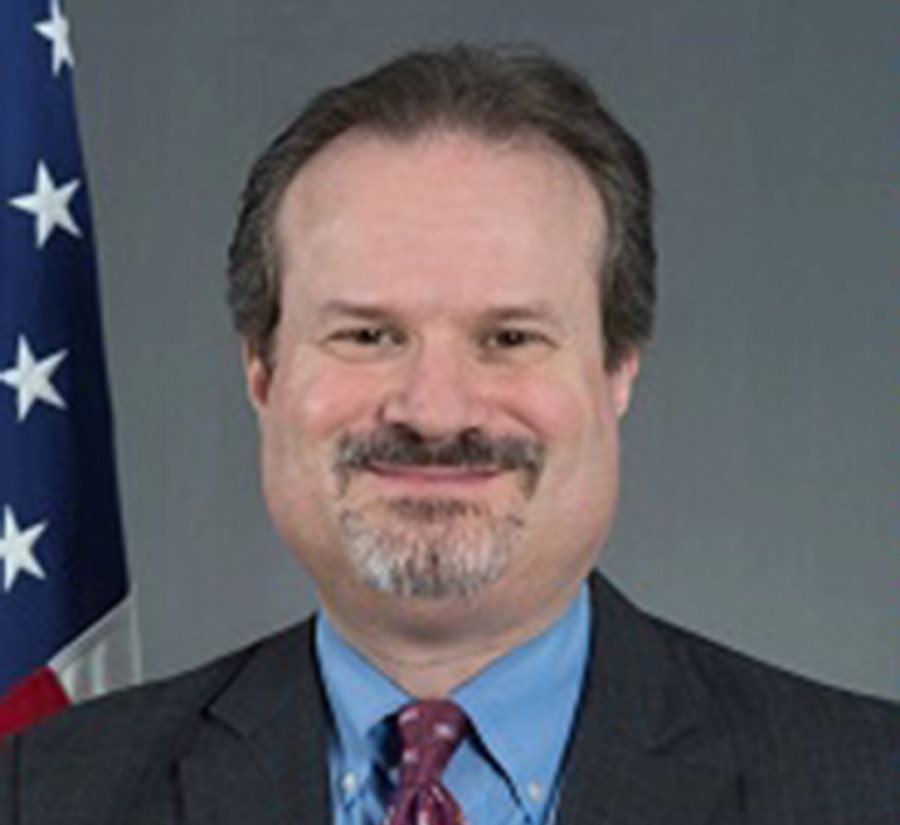Valley
Indo-Pacific Strategy is not against any country, visiting US official asserts
A visiting senior US State Department official said on Tuesday that the Indo-Pacific Strategy is not against any country and that the United States is not asking Nepal to be “for” or “against” it.
Anil Giri
A visiting senior US State Department official said on Tuesday that the Indo-Pacific Strategy is not against any country and that the United States is not asking Nepal to be “for” or “against” it.
At a time when the Nepal government is refuting that Nepal is not part of the larger American strategy, Acting Deputy Assistant Secretary of State for South Asia David J Ranz, said that the Millennium Challenge Corporation(MCC) where the US has put $500 million in grant to Nepal for some infrastructure projects, is very much part of the strategy.
Nepal’s role in the Indo-Pacific Strategy became a hot issue in Kathmandu after Foreign Minister Pradeep Gyawali’s visit to the United States in December last year. It had also triggered a debate after Washington sought “Nepal’s central role in free and open Indo-Pacific”.
In the midst of the controversy, Foreign Minister Gyawali held a press conference on December 24 last year after his meeting with US Secretary of State Mike Pompeo in Washington and rejected outright reports about Nepal supporting the Indo-Pacific Strategy of the United States.
Gyawali had clarified that though Nepal’s role in the Indo-Pacific region was discussed during his meeting with Pompeo, they did not talk about the Indo-Pacific Strategy.
In an interaction with journalists in Kathmandu on Tuesday, Ranz said the United States approach to the Indo-Pacific is not about imposing its agenda on other countries or asking them to take side with it rather than other neighbours.
Some in Kathmandu perceive that the US-led initiative is a countermeasure to tame China’s bid to make inroads into Nepal through the Belt and Road Initiative.
Nepal signed up to China’s global infrastructure ambition in May 2017. US officials have also expressed concerns in the past over projects under the BRI and their funding modality.
“The title BRI looks wonderful but let’s focus on its projects,” said Ranz. “It is also claimed that BRI is open, green and clean but actually it is important how individual projects are running.”
Ranz, who was critical of BRI projects like other US officials who visited Nepal in the past months and made critical statements, maintained a similar position on Tuesday.
In February-end, a senior US defense official, who was on a visit to Kathmandu, had dropped a caveat: Chinese investment should be designed to serve the interest of Nepal and not just China.
Speaking to journalists, the visiting US Deputy Assistant Secretary of Defense for South and Southeast Asia, Joe Felter, said that some activities that China has been engaged in the past across the region—in Sri Lanka, the Maldives and Malaysia—are a cause for concern. “We welcome a constructive relation with China, we welcome the investment by China, but as long as that investment is designed to serve the interest of Nepal and not just China,” he said.
“Whether the projects under the BRI are adding value or not, positive contribution in individual country’s economy are making or not, whether it is helping for employment generation, return of the investment, issue of environment are addressed or not,” said Ranz said, “otherwise if things are transparent, we are happy to collaborate with Chinese company.” He gave an example of recently concluded breakthrough of Bheri-Babai Irrigation Project in western Nepal. The 12-km tunnel of the irrigation project was built and installed by a US-based manufacturer at a cost of Rs10.57 billion whose contractor was the Chinese.
Without naming projects under the BRI, Ranz said that any project should maintain greater transparency, be free from corruption, address environmental concerns, among others.
Defending the characteristics of the Indo-Pacific Strategy and its core value, Ranz said that it is about economic connectivity, enabling private sector investment where various US private companies have put trillion dollars of investment in the region together, supporting for easing doing business, creating environment for financing and investments, among others. “India is the key player in the Indo-Pacific Strategy due to several reasons,” said Ranz. “But it is not an alliance, an agreement but it deals with freedom of navigation, protection of sovereignty and advocates for free economic and political environment,” said Ranz while calling on China to become part of it.
While calling the US as larger bilateral donor of Nepal, Ranz stated that US assistance arrives in the form of grants, and not in the form of loans designed to return a profit to others and increase Nepal’s debts.
“So there should be no doubt about the United States’ commitment to Nepal and the type of investments we bring,” Ranz added. “When the United States invests, we do so in a manner that is sustainable, transparent, and that brings real benefits to the Nepali people.”
Ranz said the US is asking Nepal to be “for” the principles that have already helped Nepal and the Indo-Pacific region prosper—principles like freedom, good governance, and transparency—and to be vigilant and outspoken against anyone who violates those principles and norms.
“The United States stands for an international system in which a rules-based order enables countries to make informed decisions on what is best for them. Nepal deserves that, Nepal should expect that, and Nepal will benefit from that,” he said.
The visiting US official also supported the ongoing struggle for press freedom in Nepal.
“We support press freedom, religious freedom and open society,” he said.




 8.67°C Kathmandu
8.67°C Kathmandu















